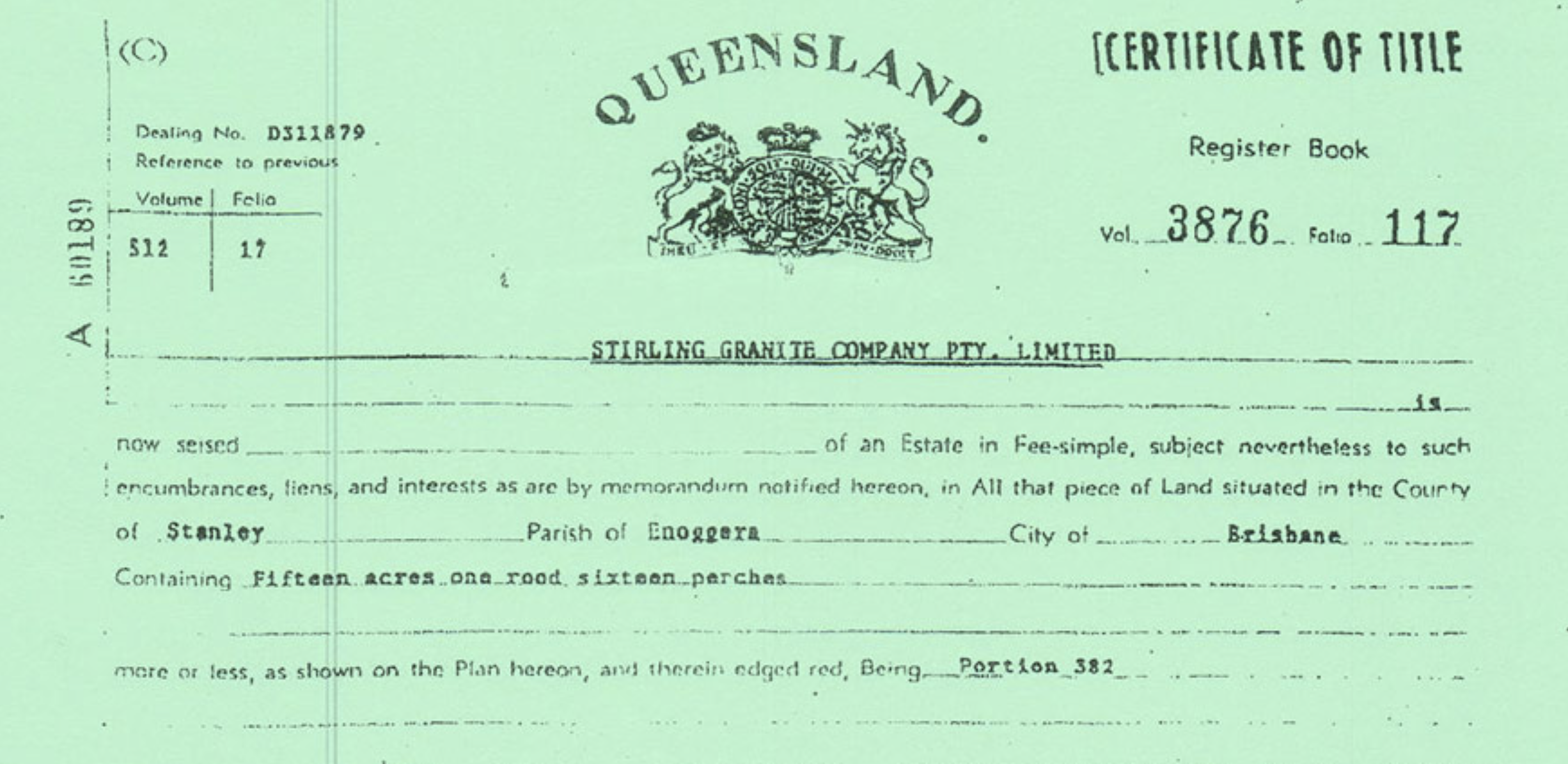What is an Estate in Fee Simple?
Commonwealth v New South Wales [1923] HCA 34 (1923) 33 CLR 1
(9 August 1923)
HIGH COURT OF AUSTRALIA
KNOX C.J., ISAACS, HIGGINS, GAVAN DUFFY AND STARKE JJ.
THE COMMONWEALTH OF AUSTRALIA PLAINTIFF
AGAINST
THE STATE OF NEW SOUTH WALES AND ANOTHER DEFENDANTS
1920-1923: SYDNEY, Dec. 1-3, 1920; Mar. 21-29, 1922; Aug. 9, 1923 33 CLR 1
Extracts from Commonwealth Law Reports Volume 33 / 33 CLR 1:-
(1920) 33 CLR 1 at 42
ISAACS J. In Challis's Real Property, 3rd ed., p. 218,
it is stated with perfect accuracy:—
“In the language of the English law, the word fee signifies an estate of inheritance as distinguished from a less estate; not, as in the language of the feudists, a subject of tenure as distinguished from an allodium.”
“Allodium being wholly unknown to English law, the latter distinction would in fact have no meaning.” “A fee simple is the most extensive in quantum, and the most absolute in respect to the rights which it confers, of all estates known to the law.”
“It confers, and since the beginning of legal history it always has conferred, the lawful right to exercise over, upon, and in respect to, the land, every act of ownership which can enter into the imagination, including the right to commit unlimited waste; and, for all practical purposes of ownership, it differs from the absolute dominion of a chattel,
in nothing except the physical indestructibility of its subject.”
“Besides these rights of ownership, a fee simple at the present day confers an absolute right, both of alienation inter vivos and of devise by will.” 2
Extracts from Commonwealth Law Reports Volume 33 / 33 CLR 1:-
(1920) 33 CLR 1 at 45
ISAACS J.
With respect to the expression “fee simple”, the view enunciated in the joint opinion that “fee simple” indicates the quantum of estate, and not feudal tenure, is confirmed by the observation of Viscount Haldane for the Privy Council in the White Cap Case (Amodu Tijani v. Secretary, Southern Nigeria[50]), where the learned Lord refers to—
“an estate in fee” as “the most comprehensive estate in land which the law recognizes.”
On the same page Lord Haldane also speaks of a case where “the title of the Sovereign is a pure legal estate, to which beneficial rights may or may not be attached.”
The same learned Lord in Matamajaw Salmon Club v. Duchaine[51] says that in England “there has always been permitted great latitude in splitting up the title to the fee simple.” The same learned Lord, again for the Privy Council, had already in Smith v. Vermillion Hills Municipality[52] recognized the principle when he spoke of certain land—
“the fee of which is in the Crown.”
It is obviously right, therefore, to say that under sec. 85 (I.) the Commonwealth holds the land for an estate of fee simple in possession, that having no reference to any tenure under the State. The title transferred by sec. 85 is taken from the State, as I have already said, adversely to State law and by a law superior, and by that superior law is vested in the Commonwealth; and, as that superior law is the sole source of title, it follows that nothing henceforth can depend on State registration laws or State laws of any kind.
But as the land—not being in Commonwealth “territory” properly so called, that is, outside a State—remains in the State boundaries, it was necessary to provide that the governmental powers of the Commonwealth—exclusive in themselves—should, for the purpose for which the land was transferred, be entirely free from State jurisdiction. To this end sec. 52 (I.) was shaped in the form in which it exists. It enacts that the Commonwealth Parliament shall have exclusive power to legislate for—
“the seat of government of the Commonwealth, and all places acquired by the Commonwealth for public purposes.”
Even in America, it may be necessary to repeat, where no such explicit law exists, it is held that the Congress may validly legislate for the protection of its public lands, even within a State. As Brown J. said for the Court, in Camfield v. United States[53], “a different rule would place the public domain of the United States completely at the mercy of State legislation.” This was a decision in 1897, and the later Commonwealth Constitution has provided specifically, and in larger terms, for the Federal power. The grant of exclusive power carries an inevitable inference with it. It shows that the proprietorship and the sovereignty were intended to go together in this respect.
4 pages, use toolbar at top to open.
16 pages.
